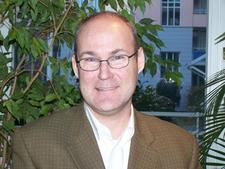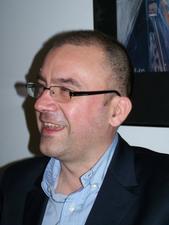New Start for Arkeia: an Interview
Network Backup vendor Arkeia has an infusion of cash, a new CEO and marketing chief, a move back to a former headquarters, and a new version with a virtualization client. Linux Magazine Online had the opportunity to interview Bill Evans, Arkeia's new CEO, and Frederic Renard, the new VP of marketing.
Linux Magazine Online: How did you come to moving Arkeia's headquarters back to Paris?
Evans: Arkeia has all these years been a U.S.-French company. In its founding year 1996 the headquarters was in San Diego. Then a French investor brought in 10 million dollars and headquarters was moved to Paris. Arkeia is now returning to its original location.
LMO: How many years were things run out of France?
Renard: Altogether four years, from 2004 to 2008.
LMO: What dollar figure is bringing Arkeia back to the U.S.? Who is the investor?
Evans: The exact figure has not been communicated, but it's a private equity syndicate, that's all we can say. In any case most of the previous money went into development, for which we are very thankful. But that was the problem: the company had technicians, but practically no marketing and sales people, so that far too few people got to know our products.
Renard: Yes, but we've always been very strong and well known in the Linux market. Arkeia currently runs on 130,000 platforms, 100,000 of which are Linux platforms. And meant are not only SLES and RHEL, we actually support distributions like Debian, CentOS and Ubuntu, with no commercial support to back them up. That's absolutely unique.
LMO: What was the effect of moving workplaces back to France?
Evans: Well, not everyone works permanently for Arkeia Some of the developers that work at Arkeia are freelance and some of the work is outsourced.
LMO: How many developers have and will work for Arkeia?
Renard: We had about 25 and we plan to stay with that.
LMO: Will the development stay in France?
Evans: We don't tell our developers where they have to live. That's one of the biggest advantages of distributed development, its flexibility. Linux is one of the best examples of how it works. We now have two locations, San Diego and France, and we already have plenty of outside distributors and Arkeia customers in 70 countries.
LMO: How would you define your strategy?
Evans: We have great cutting-edge technology products, but lack brand awareness. Our brands aren't taken seriously enough in the market, not even in the Linux area. We intend to change that.
LMO: Does Open Source play a role in your considerations?
Evans: We've thought about it, we do think about it, but today we're not an Open Source company.
Renard: However, our developers are contributing a lot to the Open Source community, a lot of code flows into it. There's especially MySQL, and we also freely provide individual packages, for example, for the tape libraries.
LMO: With your new version 8 of Arkeia Network Backup you offer a vitual backup appliance. Do you see virtualization as part of your strategy?
Evans: Yes, of course. Linux users are early adopters, they'll be the first to adopt virtualization. Linux is known for coexisting; Windows is not that fond of coexisting. When we started off, Linux was disruptive because it redefined an existing market. In the same way we think that virtualization is disruptive.
LMO: The new virtual appliance from Arkeia supports the commercial virtualization ESX and ESXi from VMware. Are you planning to support further virtualization solutions?
Renard: Yes, soon to come are Xen, KVM and Microsoft.
Evans: WMware has a current 70% hold on the market, so it's clear that it should be the first to come. And Microsoft has a lot of money. Once they begin marketing their virtualization, it should have a big effect on the market.
Renard: We're putting a lot of weight on the ovf format, it's flexible so we're not dependent on any specific vendor.
Evans: Arkeia has always been a technological pioneer in that regard, I'll have to say. Arkeia Network Backup provides data security in three variants: first as classic software, then we've had the physical appliance for over a year, that's pretty new. Back then we introduced a VMware-based virtual appliance that customers could use to check the functionality of the physical appliance. On the basis of this experience we can now provide the virtual appliance as our turnkey third variant, which makes us the very first to do so worldwide.
Renard: With version 8 of VMware ESX Hypervisor we'll be supporting the 130th backup platform.
LMO: When will Arkeia Network Backup version 8 be coming to market?
Evans: Beta test is in progress and the release to market is planned for March. I'm sure we can hold to that target date.
Subscribe to our Linux Newsletters
Find Linux and Open Source Jobs
Subscribe to our ADMIN Newsletters
Support Our Work
Linux Magazine content is made possible with support from readers like you. Please consider contributing when you’ve found an article to be beneficial.

News
-
Linux Mint 22.3 Now Available with New Tools
Linux Mint 22.3 has been released with a pair of new tools for system admins and some pretty cool new features.
-
New Linux Malware Targets Cloud-Based Linux Installations
VoidLink, a new Linux malware, should be of real concern because of its stealth and customization.
-
Say Goodbye to Middle-Mouse Paste
Both Gnome and Firefox have proposed getting rid of a long-time favorite Linux feature.
-
Manjaro 26.0 Primary Desktop Environments Default to Wayland
If you want to stick with X.Org, you'll be limited to the desktop environments you can choose.
-
Mozilla Plans to AI-ify Firefox
With a new CEO in control, Mozilla is doubling down on a strategy of trust, all the while leaning into AI.
-
Gnome Says No to AI-Generated Extensions
If you're a developer wanting to create a new Gnome extension, you'd best set aside that AI code generator, because the extension team will have none of that.
-
Parrot OS Switches to KDE Plasma Desktop
Yet another distro is making the move to the KDE Plasma desktop.
-
TUXEDO Announces Gemini 17
TUXEDO Computers has released the fourth generation of its Gemini laptop with plenty of updates.
-
Two New Distros Adopt Enlightenment
MX Moksha and AV Linux 25 join ranks with Bodhi Linux and embrace the Enlightenment desktop.
-
Solus Linux 4.8 Removes Python 2
Solus Linux 4.8 has been released with the latest Linux kernel, updated desktops, and a key removal.


